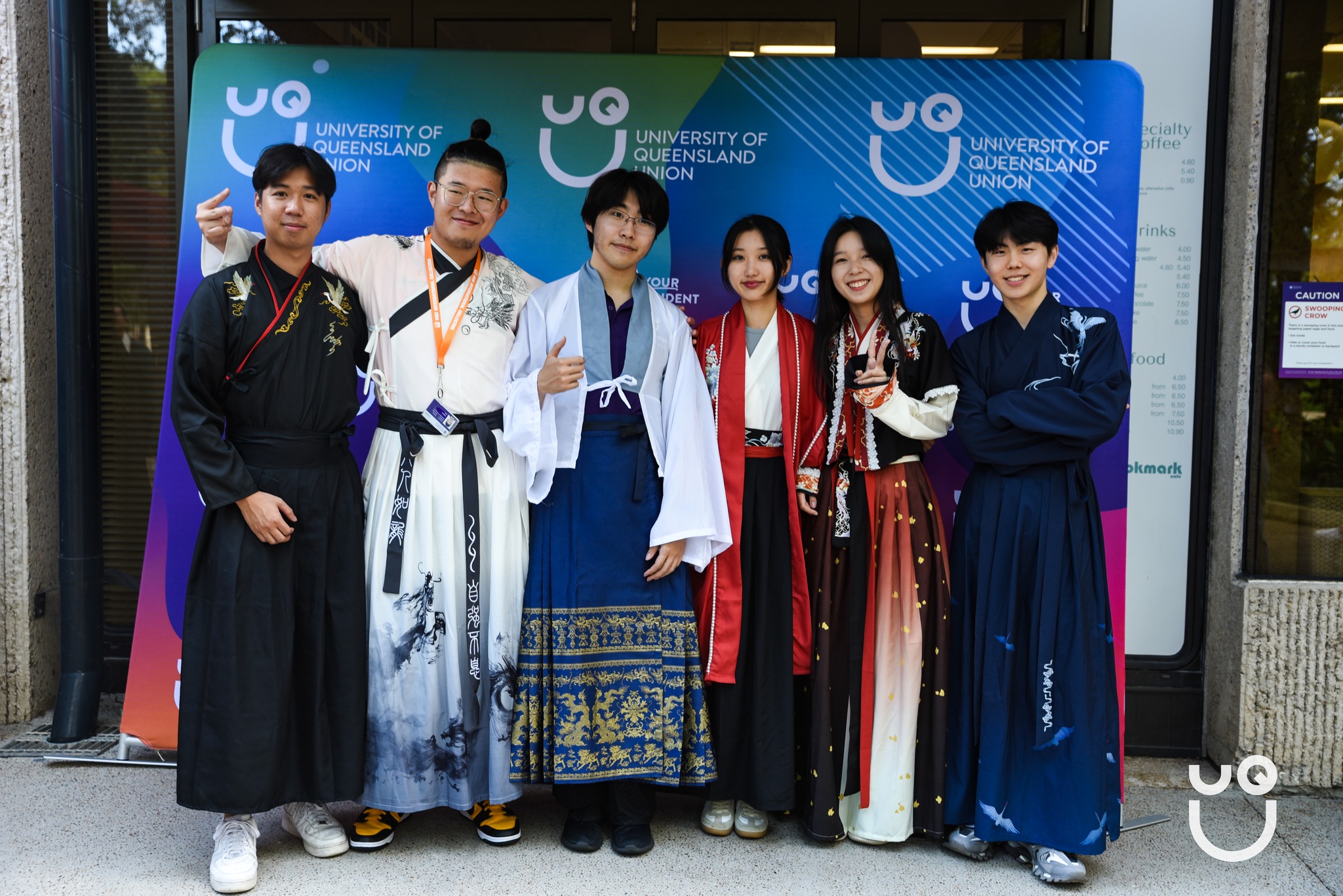
Introduction
Cultural events became a primary focus of the campus culture team in the UQU as of last year, which set 2023 off with a bang after a highly successful Lunar New Year event on campus.
I reported on this event last year, where I interviewed TJ and Shivam – who were the Campus Culture VPs at the Union who organised the event at the time – and I asked them questions about why events like these are so important to maintaining a positive and inclusive culture on campus.
This year, I’ve decided to do the same thing by asking some of the same questions I asked last year to this year’s Campus Culture (Events) VP Samuel, and one of our International Officers Alston, who each played a massive role in the event this year.
What does the rest of the year look like for cultural events like this?
When asked about the scope of upcoming cultural events for the year, Samuel said the following
“We’ll be planning to host a lot of big events, and a wide variety of events from all different cultures and backgrounds.”
Alston further alludes to some of the events that are planned by the International Collective – or are an ongoing conversation within the IntCo team – which represent some of these other cultures around the world. Some of which the Union hasn’t had much planned for in past years, which would be incredible to see in the promotion of further cultural recognition and diversity on campus.
“We have other festivals coming up, such as the Indian Holi festival… after that, we will also organise the Moon Festival, the Japanese Bon Festival… we will also consider doing festivals which are from South America, Africa, and other regions.”
Besides these major, significant events based around diverse cultures, Samuel also provides us with an idea for a more frequent, passive style of event which will help to promote more cultures on campus.
“Doing a fortnightly cultural class, with different clubs that will be leading it… for the rest of the year, just trying to get as many people involved as possible, trying to get a wide variety of events so that everyone can be catered to”
It’s great to see that both the Events VP and our International Collective both have so many ideas, not only for large-scale events for our diverse cultures on campus, but also small and frequent events to make sure that cultural sharing and cultural celebration on campus holds onto the momentum that these large events have the potential of creating.
We have a multitude of culturally diverse clubs and societies here at UQ, as well as the International Collective. What kind of part are they going to be playing in these sorts of events throughout the year, and how have they been able to help with this event?
Starting with Alston’s thoughts as one of the International Officer’s this year, who runs the International Collective, he gave us his thoughts on the key role that IntCo plays in the running and planning of these events.
“The International Collective hopes to act as a coordinator, listening to and helping all the clubs and societies of different cultural backgrounds to come together to organise festivals with cultural attributes.”
Samuel also mentions his view of the importance in IntCo’s collaboration on these events
“With the International Collective, I’m hoping to work closely with them whenever we have any cultural events”
Alston further highlights the importance of collaboration in the planning and running of cultural events on campus, particularly with regards to clubs and societies.
“If we want to organise richer and more varied cultural activities, we must really understand the thinking of the local people who are in the midst of this cultural life. These clubs and associations become disseminators and promoters of diverse cultures. Only with this kind of cooperation can culture become authentic and pure.”
Instead of competing for a chance to solely run and plan these events within their portfolios, these various parts of the Union are choosing to contribute their time and resources to ensuring that these events run as smoothly and collaboratively as possible.
It’s the sort of mindset that can only be brought about by the Student Union, and by UQU executives who have the first-hand experiences within clubs and societies, and as students from these communities and cultures.
How important do you think the student union is in promoting cultural diversity on campus? Can you elaborate on why?
Alston found the role of the Union in encouraging cultural diversity to be of utmost – if not incomparable – importance. He alludes not only to the influence of the International Collective in this space, but also the influence of other portfolios.
“The Union plays a key role in this, not only via the International Collective, but also via the Campus Culture portfolio.”
He elaborates on why it’s so important to recognise not just the international portfolio, but also other portfolios, saying
“Our rich cultural diversity on campus does not exist on its own, and it is not focusing only on students and people who belong to these cultures. It is because of the Union that our rich cultural diversity can flow through our campus… It is not only the international students who feel touched by their homes and traditions, but also the local students who are exposed to the colourful atmosphere of the world’s cultures through Union initiatives.”
Samuel elaborates more on how this year’s executive will play a massive role in promoting cultural diversity.
“I think this year, with the student exec team of the Union being so diverse, and of all different identities, it’s going to play a particularly big role.”
He views this as important because these identities will influence their approaches to organising events and running their respective portfolios.
How important is it that we hold more of these culturally diverse events? How do they help to build a more active campus culture for all students?
Alston in particular had a lot of thoughts on this question, saying
“These are global times, and UQ needs to become a more international campus. Celebrating cultural diversity and remaining inclusive are essential requirements for universities today. By organising these events to celebrate cultural diversity, we are fulfilling the role of the Union that I have just mentioned, that is, the dynamic dissemination of culture.”
Samuel further points out the importance of the inclusion of local students, and those of a variety of cultures, in events from cultures different to their own.
“It’s important to learn about different cultures and it’s also good to have people from diverse cultures who are in Brisbane, and to be able to host events for them, so they can still feel at home even though they’re in a different place. People also love to learn about cultures that are different than their own, so it’s good to see these sorts of events for these people as well.”
Alston also provides a similar sentiment to this, elaborating on previous comments with a similar point.
“It is a very colourful link between international students and their heritage, between international students and the campus, between local students and multiculturalism, and a way for international and local students to interact and become friends. When culture really starts to flow, it’s amazing what it can bring in terms of rewards and significance.”
Conclusion
I can’t think of a better way to conclude this article than by reiterating Alston’s final points. I personally think it’s incredibly important to promote the connection between our international students and our domestic students on campus, and I am just incredibly glad that the Union is currently at the forefront of cultural representation on campus.
Because nobody knows how to represent student perspectives better than students who have been elected to do exactly that.
Views: 75
